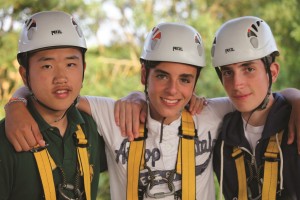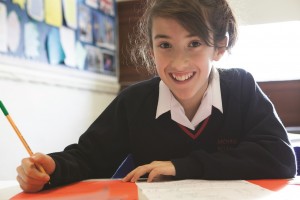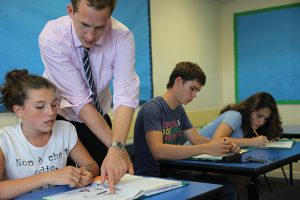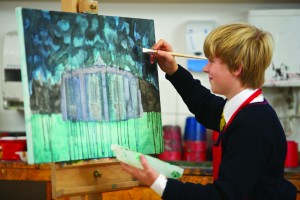With hundreds of independent boarding schools and colleges to choose from, you are certain to find one that suits your child’s needs
One of the most important decisions for parents and the children is the choice of school and, if the children and parents’ decision is for a boarding education, the right choice is even more important. As well as their education, you will also be trusting your children’s day-to-day welfare and happiness to the school. However, by choosing one of the schools featured in this Guide, you can be certain that high standards are assured.
The UK education system
Education in England is compulsory for everyone aged 5-18. Education is compulsory for pupils aged 5-16 in Scotland and Wales, and for those aged 4-16 in Northern Ireland. After age 16, many students in the UK continue into further education, which encompasses learning usually taken between the ages of 16 and 18. After age 18, many students then choose to progress into higher education, which is offered by universities, university colleges and colleges of further and higher education.
Compulsory education and some further education is provided either free of charge by the state in state schools, or by independent schools, where parents pay fees for their children to attend. The UK Government sometimes refers to state-funded academies and free schools as ‘independent’, meaning that they are not subject to the control of their local education authority. However, academies and free schools receive state funding and are therefore considered to be state schools rather than truly independent schools. Academies and free schools do not have to follow the National Curriculum – they can choose their own curriculum, as long as it is ‘broad and balanced’. All other state schools must follow the National Curriculum, while independent schools are free to enhance their curricula to meet their students’ particular requirements.
The state system
In the state system, schools are maintained and funded by central government or by their local education authority. There are currently 34 state-maintained boarding schools, but these only offer places to UK and other European Economic Area nationals and those who have the right of residence in the UK. The education at state-maintained boarding schools is free, but the cost of boarding must be met by parents or guardians. See here for more information on boarding in the state sector.

The independent system
In the independent system, schools are not supported by the state, and parents will usually pay the fees for their children’s education and living costs if they are boarding at the school. The UK’s long-established and highly respected independent boarding schools welcome young people from around the world, and are currently home to around 29,000 international students.
There are three main types of independent boarding school for students
aged 7-18. These are:
• preparatory schools (sometimes called junior schools) for students aged 7 (or younger if the school has a pre-preparatory department) to 11/13.
• senior schools (sometimes called secondary schools) for students aged 11/13 to 16/18.
• independent colleges (which are often referred to as tutorial, sixth-form or further education colleges) for students aged 16 and over.
All of the schools with profiles in this Guide operate in the independent sector. Most of them are preparatory and senior schools, although you will find some independent colleges listed. There are also some international study centres profiled in this Guide. Most of these centres are linked to boarding schools, and prepare international students for life at a traditional boarding school.
Independent preparatory schools
Pupils aged between 7 and 13 can attend their first boarding school, known as a preparatory or ‘prep’ school as the pupils are being prepared for senior school. Many schools also have pre-preparatory departments that take pupils from age five or even as young as two (approx. 69,000 pupils at independent schools are five or younger). Most pre-preparatory departments are for day pupils only. Approximately 80% of prep schools are now co-educational, but over 60 cater exclusively for boys while about 40 take only girls. There are also choir schools, non-denominational schools and prep schools that specialise in dyslexia or other special educational needs. Some prep schools send their pupils on to a range of senior schools, while others are attached to senior schools to which most of their pupils progress. A small number take only boarders, while most have a greater or lesser proportion of day pupils.
Accreditation
All the prep schools featured in this Guide are members of the Independent Association of Prep Schools (IAPS), which is the leading professional body for prep school heads. IAPS is one of the eight constituent member associations of the Independent Schools Council (ISC). IAPS schools are regularly inspected by the Independent Schools Inspectorate (ISI) in England and by the relevant national inspectorate in Scotland, Wales and Northern Ireland. Accreditation by the ISI or a national inspectorate guarantees that the quality of the school has been assessed and confirmed by rigorous inspection. In addition, all independent schools must be registered with the UK Government, and meet minimum legal requirements for the premises, accommodation, staffing, instruction and pupil welfare.
Study
All prep schools offer the highest standard of academic education and provide an excellent foundation for future study. The three main subjects studied are English, maths and science, although a range of subjects including geography, music, information technology and modern languages are also taught. Some prep schools assess the progress of their pupils using a series of national tests at the end of Key Stage 2 (age 11), while others assess their pupils using an alternative system, as it is not compulsory for pupils at independent schools to take these national tests.
Prep schools, particularly boarding schools, traditionally prepare pupils for the Common Entrance (CE) examination, which assesses the student’s ability in core subjects. The exam is set by the Independent Schools Examinations Board (ISEB) and usually taken at age 11+ or 13+, depending on the senior school. Admissions criteria and the CE mark that needs to be attained vary according to the senior school. For more information about the Common Entrance exam, see our article here. Special arrangements may be made for pupils coming from abroad or whose first language is not English.
The next step
As your children grow up, the head of the prep school will always be ready to advise you on what the next stage could or should be. If you have chosen the junior department of a senior school the transfer may be a matter of course, but you may decide to look elsewhere as well. A change of environment or a change of peer group may be beneficial and the head will be happy to discuss your options. If you have chosen a prep school where pupils do not automatically progress to a particular senior school, the head will be able to recommend the type of senior school he or she thinks might be suitable for your child, and talk over the various alternatives with you. For more information about choosing a prep school for your child, see our article here.
As well as mainstream schools, there are a number of specialist schools in the independent boarding sector:
Choir schools: There are 46 schools in the UK, educating over 20,000 students, that are members of the Choir Schools’ Association (CSA). Around 1,200 of the schools’ pupils are choristers who regularly sing in cathedrals, college chapels and churches around the UK. Click here for more information.
Music and dance schools: There are eight specialist schools in England that receive funding under the Government’s Music and Dance Scheme. The schools aim to provide world-class music and dance teaching combined with a broad and balanced education. The music schools are Chetham’s School of Music, the Yehudi Menuhin School, the Purcell School, and Wells Cathedral School. The dance schools are the Royal Ballet School, the Elmhurst School for Dance (in association with Birmingham Royal Ballet), the Tring Park School for
the Performing Arts and the Hammond School.
Special needs schools: Boarding can be a particularly beneficial experience for a child with special needs. Some schools aim to bring progress within a mainstream school approach; others are dedicated special needs schools where all the pupils will have similar difficulties (for example, dyslexia). See here for details of some of the organisations that can provide further information about choosing a school that specialises in special needs provision.
Independent senior schools
Pupils generally transfer to a senior school between the ages of 11 and 13, and stay there until aged 16 or 18. Senior schools in England, Wales and Northern Ireland have three main points of entry: age 11 (Year 7 in the academic year numbering system used in education in these countries), age 13 (Year 9) and age 16 (Year 12). In Scotland, independent schools are generally more flexible about points of entry, but most pupils join senior schools when they are 12 (S1 in the Scottish academic year numbering scheme). Some senior schools accept pupils on the basis of the Common Entrance examination at 12 or 13 (S1 or S2) and most will also accept pupils at a later stage.
Like preparatory schools, senior schools may accept boys or girls only, or can be co-educational. Some boys’ senior schools accept pupils from age 11, but most start at age 13, and many have an associated prep school. Girls’ senior schools usually accept pupils from age 11, with many girls’ schools having their own prep or junior school. Most single-sex schools ensure that pupils spend time with members of the opposite sex by sharing activities with other schools. Several schools now offer single-sex teaching up to age 16 and then have mixed education between the ages of 16 and 18 in what is known as the ‘sixth form’. Co-educational schools have increased in number in the UK. This is due to single-sex schools admitting the opposite sex or merging with a girls’ or boys’ school with which they are linked. In schools that have always been co-educational, the ratio of boys to girls is usually around 50:50. It is possible that a co-educational school that was once single sex may still have significantly greater numbers of that sex.
Accreditation
There are more than 800 independent boarding schools in the UK. Of these, 474 schools and their heads are members of at least one of the constituent associations of the ISC. For senior schools, these associations are the Headmasters’ and Headmistresses’ Conference (HMC), the Society of Heads, the Girls’ Schools Association (GSA) and the Independent Schools Association (ISA). These bodies make sure that all aspects of the education offered – academic, pastoral, financial and administrative – are maintained to a high standard. Both the education and boarding provision at ISC-member schools in England are inspected by the ISI, while ISC-member schools in Scotland, Wales and Northern Ireland are inspected by the relevant national
inspectorate (see here for details).
Study
In England, Wales and Northern Ireland, senior school pupils are prepared for and sit GCSE (General Certificate of Secondary Education) examinations, which they take at around age 16. In Scottish senior schools, pupils sit either National Qualification or GCSE examinations. Pupils who achieve suitably high grades in these examinations qualify for further education at sixth-form level. Many boarding schools have their own sixth form for pupils aged 16-18, although some do not. In these cases, students may choose other schools or independent sixth-form or tutorial colleges to continue their studies.
In the sixth form, students may study a range of qualifications. Many study AS- and A-level examinations, while an increasing number have the option of studying for the International Baccalaureate (IB) Diploma, which is accepted as an entrance qualification for degree courses throughout the world. Many
independent schools are also offering the Cambridge Pre-U Diploma and the AQA Baccalaureate. Scotland has its own system of qualifications, so pupils at Scottish schools are more likely to study for Scottish Highers and Advanced Highers. See here for more about the qualifications on offer at UK boarding schools. You can find out how qualifications from your country compare with those on offer in the UK from the UK NARIC website.
The next step
Sixth form at a boarding school is a fine preparation for university life. Although each university or higher education college decides its own admissions criteria, schools and colleges do everything they can to help their pupils get the best university place. You can find out more about the schools that interest you using the senior school profiles on this site.
Satellite schools
There is a growing trend for UK boarding schools to open ‘satellite’ campuses overseas that follow a traditional British curriculum. ISC-member schools operate over 69 such campuses around the world educating a total of over 39,000 pupils, with several more due to open in the coming years. These schools include:
Brighton College: Brighton College Abu Dhabi opened in September 2011, and educated over 1,200 pupils aged 3 to 18 by 2017. A sister school, Brighton College Al Ain, also in Abu Dhabi, opened in September 2013.
Bromsgrove School: Opened in 2005, Bromsgrove International School Thailand is a co-educational day and boarding school in eastern Bangkok that caters for students aged 2 to 18.
Cranleigh School: Cranleigh Abu Dhabi opened its doors in September 2014. With a capacity for more than 1,600 students aged from 3 to 18, it aims to become the largest school campus in the Emirate.
Dulwich College: Dulwich College Shanghai opened its doors to students in 2003, and the College has since opened two more schools in China – Dulwich College Beijing opened in 2005, followed by another campus in Suzhou in 2007. In September 2010, Dulwich College Seoul opened in South Korea’s capital, and in August 2014 the College opened a site in Singapore.
Foremarke Hall School: The School opened a small co-educational junior-age satellite campus in Dubai in September 2013.
Haileybury: Haileybury Almaty in Kazakhstan became the first British independent school in Central Asia when it welcomed its first pupils in September 2008. It was joined in September 2011 by Haileybury Astana in Kazakhstan’s capital.
Harrow School: Founded in 1998, Harrow International School Bangkok is a co-educational boarding and day school with 1,600 pupils from Kindergarten to Year 13. Harrow International School Beijing, a co-educational day school with 1,000 students, followed in 2005. Harrow International School Hong Kong opened in 2012, and has a student population of around 1,300. Harrow International School Shanghai, with a capacity of 1,700 students, opened in August
2015.
Kent College Canterbury: Kent College Dubai opened in June 2016. The school offers a British education to students aged 4 to 18.
Marlborough College: Marlborough College Malaysia is a fully co-educational boarding and day school for pupils aged 13 to 18.
Repton School: Repton School Dubai’s Junior School, for 3 to 11-years-olds, opened in September 2007, with the Senior School and boys’ boarding facility following a year later. The School has since added a sixth form and a girls’ boarding facility. The School also opened a campus in Abu Dhabi in September 2013.
North London Collegiate School: NLCS Jeju is an independent day and boarding school for girls and boys aged 4 to 18 in South Korea’s Global Education City, located on Jeju Island. The School opened its doors to over 430 students in September 2011, and teaches 1,350 students.
Sherborne: Sherborne Qatar in Doha is a co-educational prep school for children from Reception to Year 8. The School welcomed its first cohort of 340 primary pupils in September 2010. Sherborne Qatar’s Senior School opened in September 2011, and provides education up to Year 13
Shrewsbury School: Established in 2003, Shrewsbury International School, Bangkok is a co-educational day school catering for students aged 3 to 18.
Wellington College: Wellington College’s first international school, in Tianjin, near Beijing, opened in September 2011, and caters for pupils aged 3 to 18, with a dedicated nursery block. Another Chinese campus, Wellington College International Shanghai, opened its doors in August 2014.
Independent sixth-form and tutorial colleges
Instead of staying on at a boarding school sixth form, some students choose to move to an independent college. These institutions accept students aged 16+ and, like school sixth forms, provide a bridge between school and university. Colleges vary greatly in their character. Some are fully residential with similar sporting and cultural facilities to those you would find in a boarding school, while others are day schools where students live in a shared house or with a local British family. Most are co-educational and many are multicultural, offering the chance to study and socialise in the company of a wide range of people from differing backgrounds.
Accreditation
Independent colleges have their own membership scheme, run by the Council for Independent Education (CIFE). CIFE colleges, which are all based in England, undergo regular inspection by the Department for Education. They are also inspected either by the British Accreditation Council (BAC), the ISI, or by both. Accommodation provided by colleges and student welfare are checked by Ofsted. For more information about CIFE, go to their website, and for a directory of BAC-accredited colleges, click here.
Study
Independent colleges offer the same qualifications as boarding school sixth forms, such as A-levels and the IB, with many also offering GCSEs. Increasing numbers of colleges are also offering courses that are not available at boarding schools, such as foundation programmes that prepare students for study at university. Colleges tend to use an intensive tutorial style of teaching – the small-group teaching and regular testing developed at the Universities of Oxford and Cambridge. Cutting-edge learning techniques are backed up by established traditional approaches. College teachers – many of them examiners and authors of textbooks – are proven educational thinkers. Colleges have a great deal of experience of helping international students to succeed in the UK and can often offer wide-ranging support services, including English language tuition, personal tutors, open access to welfare officers and student councils.
The next step
Like boarding school sixth forms, independent colleges provide an excellent preparation for life at university. Non-residential colleges also offer international students a good introduction to life in the UK beyond the educational system.
 International study centres
International study centres
International students who are not ready to enter a mainstream boarding school can attend a course at an international study centre. These centres offer one or two-year intensive courses that prepare young learners from outside the UK for life at a traditional UK boarding school.
Accreditation
Many study centres are members of British Association of Independent Schools with International Students (BAISIS). Full members of BAISIS are inspected and accredited by the ISI, the Council of Independent Schools, the British Council as an international study centre, or by BAISIS itself. The British Council has recognised that international study centres are more than language schools, but more specialised than traditional boarding schools. British Council accreditation as an international study centre attests the quality of teaching of the English language, not only in the English lessons themselves but throughout all other subjects taught at each centre – mathematics or geography or art, for example.
Study
Study centres follow the same curriculum – mathematics, science, information technology and so on – as traditional UK schools. There is, however, heavy emphasis on developing English language skills, including pronunciation. Many centres enter their pupils for English language exams such as the Cambridge ESOL (English for Speakers of Other Languages) exams. Occasionally other educational institutions such as universities require proof of a certain level of fluency in English and the results from exams such as ESOL can than be very valuable. In every subject, classes are small (averaging around six students per teacher) and teachers experienced in teaching English as a foreign language guide students through carefully prepared programmes of study.
Study centres also prepare students for life in boarding school. All study centre students live at the centre; their houseparents are aware of the possible problems for young people coping with a new culture and help and support pupils as they overcome difficulties. Students usually need between one term and one year to pass the entrance exams to enter traditional UK boarding schools, but sometimes stay longer if necessary.
The next step
Often students go on to the boarding school that has set up the centre, but this progression is not automatic. In most cases, students have to take the same high-standard entrance exams as other pupils who wish to enter these schools. Sometimes parents and students have their sights set on other schools, and progression to these depends on the student reaching the high standards they expect. Whichever school is chosen, the study centre will prepare each student carefully for the entrance examination. If the student does not reach the high standards demanded, the study centre will suggest another good-quality school that may be more suited to the pupil’s talents. Find out more about choosing an international study centre for your child and get information about individual centres from the study centre profiles on this site
Glossary
The British Council: A UK organisation with offices in over 100 countries. It provides information and advice about studying and living in the UK.
National Curriculum: This applies to children under 16 in maintained schools in England, Wales and Northern Ireland, and is geared towards gaining particular skills by certain Key Stages. It is used as an important guide by independent schools.
National year numbering scheme: The main organisational classifications for teaching the National Curriculum. Year groups are organised by age and the expected level of achievement. In England, Wales and Northern Ireland, the groups are arranged from Year 1 (age 5+) to Year 13 (age 17+, the second year of sixth form). In Scotland, the groups run from P1 (age 5+) to P7 (age 11+) and then from S1 (age 12+) to S6 (age 17+).


